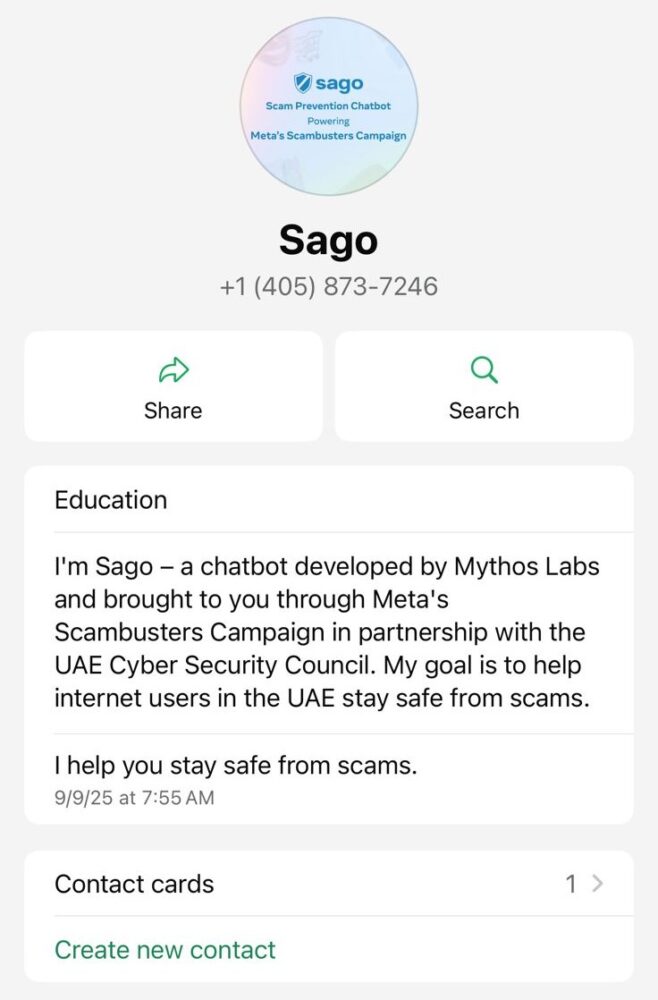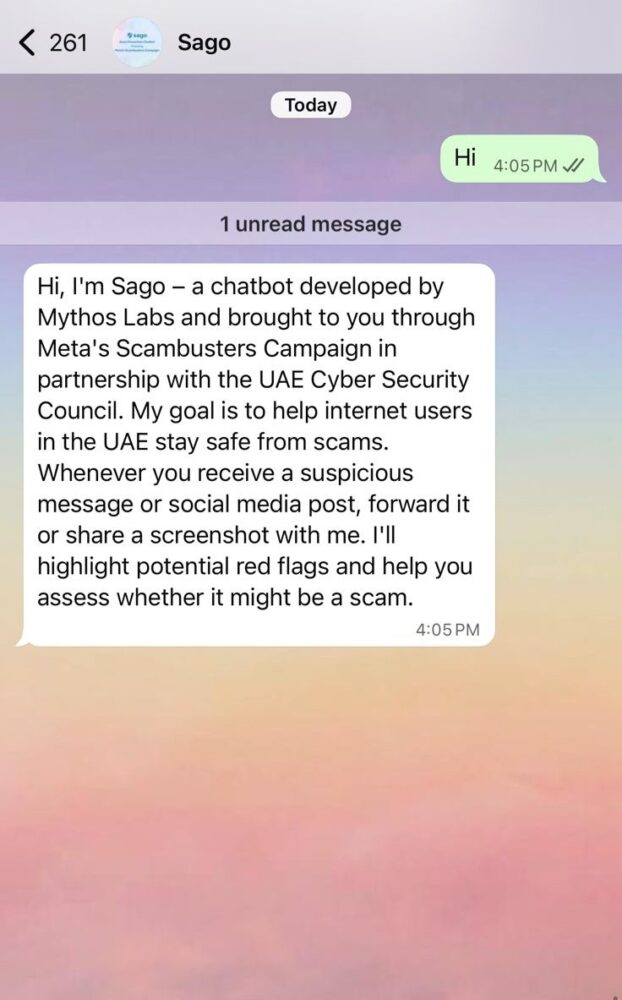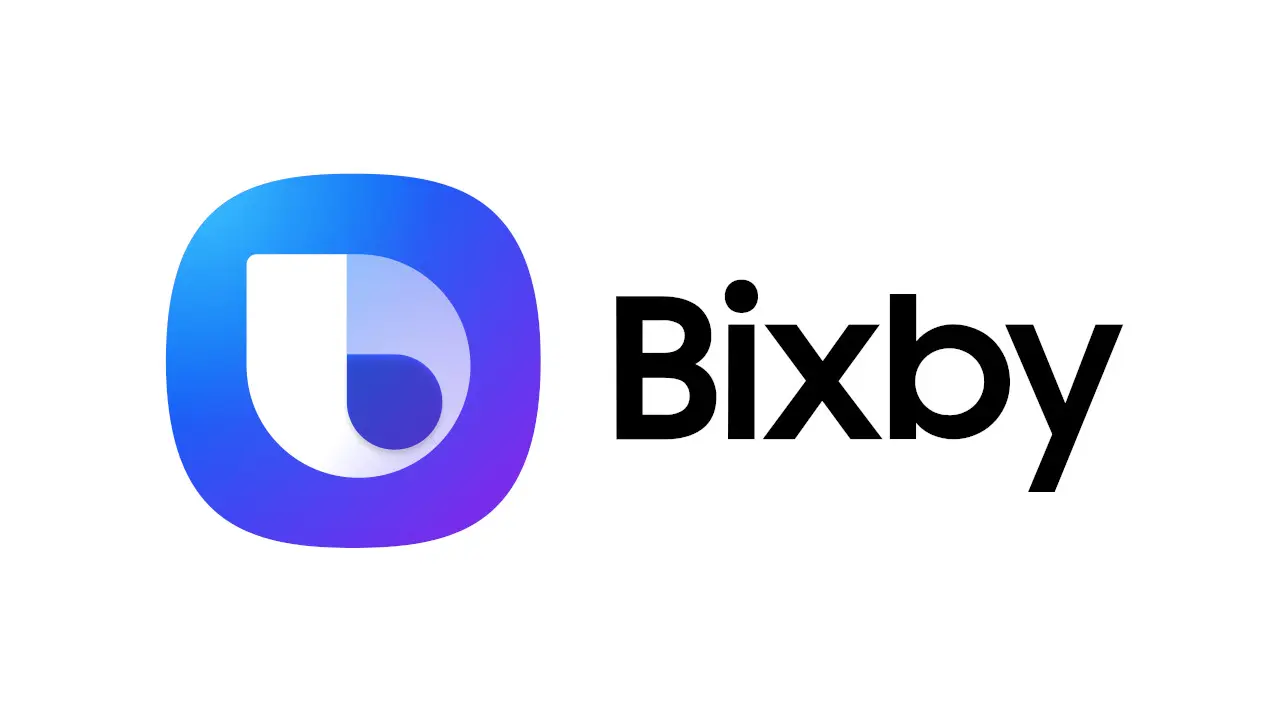The UAE Cyber Security Council (CSC) and Meta have launched “Scambusters,” a nationwide digital education campaign designed to help users recognize and report online scams. The initiative focuses on raising public awareness of common cyber threats, offering practical guidance on identifying suspicious behavior, and introducing new tools to help users stay safe while using social platforms.
The campaign directs users to “Sago,” an AI-powered chatbot on WhatsApp developed by Mythos Labs. Sago allows users to forward suspicious messages or screenshots, analyzes the content, and flags potential warning signs to help determine if a message might be fraudulent. The chatbot serves as an interactive learning tool, making cybersecurity education more accessible to everyday users.
His Excellency Dr. Mohamed Al Kuwaiti, Head of Cybersecurity for the UAE Government, said that online scams and cybercrime now represent a significant and escalating threat that impacts individuals, private businesses, and government institutions alike. As digital systems become increasingly integrated into essential services such as energy, telecommunications, and finance, he emphasized that cybersecurity has become a national security priority requiring sustained coordination and investment.
Basma Ammari, Meta’s MENA Director of Public Policy, noted that the partnership highlights Meta’s commitment to user safety through education and collaboration. “We recognize the critical role that stakeholders like the CSC play in helping us extend the reach and impact of such initiatives,” Ammari said. The “Scambusters” campaign will run for two months, supported by co-branded ads across Meta’s platforms that redirect users to the chatbot and online safety resources.

The effort comes amid growing global concern over the rise of online scams, which have evolved from basic phishing schemes into more sophisticated forms of digital deception. Meta has recently introduced several in-app safety features to counter these threats, including warning prompts when users receive messages from unknown contacts and alerts when they are added to new groups on WhatsApp. The company is also testing facial-recognition-based tools such as “celeb-bait” ad detection and optional video-selfie verification for account recovery.
Meta says the campaign aligns with its broader strategy to combine advanced detection technologies with public education. The company’s layered approach includes stronger enforcement mechanisms, enhanced reporting tools, and partnerships with regional cybersecurity authorities to adapt to emerging scam tactics.
For the UAE, “Scambusters” supports the government’s long-term cybersecurity goals outlined by the Cyber Security Council since its establishment in 2020. The Council’s mission includes developing a resilient national cyber infrastructure, building public awareness, and fostering collaboration between the government, private sector, and academic institutions to create a secure digital environment.
More information about the campaign and Meta’s safety tools is available here.







